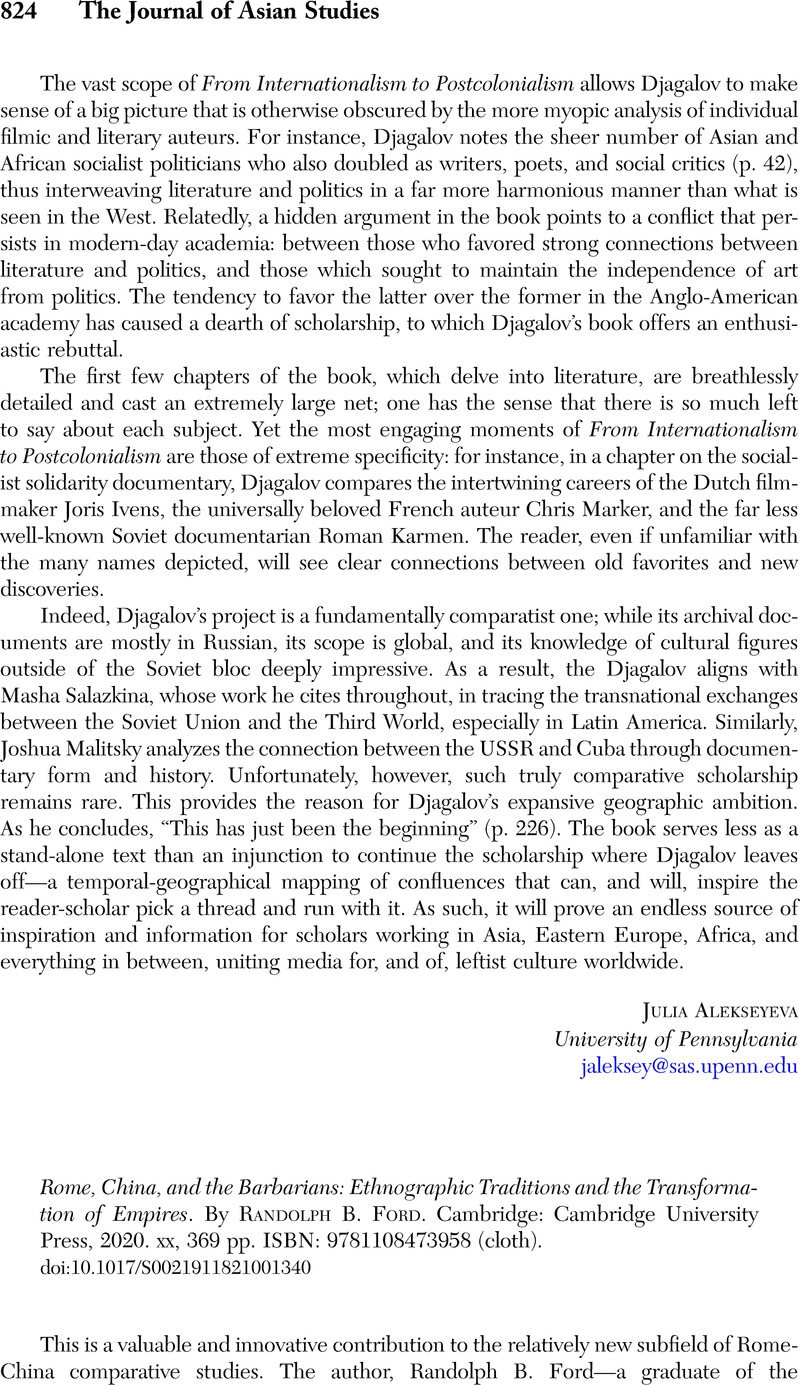No CrossRef data available.
Published online by Cambridge University Press: 01 September 2021

1 Note, though, that the barbarians who emerged as the leaders of Western Europe, the Franks, also falsified a narrative of descent from the Trojans, thereby creating a genealogical link to Rome without compromising their Frankish identity. I thank Anthony Kaldellis for this insight.
2 Whether this changed for Sogdians after the An Lushan Rebellion (755–63) is a matter of debate that I shall not dwell on here, but my position is that it did not.
3 Skaff, Jonathan Karam, Sui-Tang China and Its Turko-Mongol Neighbors: Culture, Power, and Connections, 580–800 (Oxford: Oxford University Press, 2012), 9–10CrossRefGoogle Scholar, 52–60.
4 For example, Yang, Shao-yun, “‘What Do Barbarians Know of Gratitude?’—The Stereotype of Barbarian Perfidy and Its Uses in Tang Foreign Policy Rhetoric,” Tang Studies 31 (2013): 28–74Google Scholar.
5 Rogers, Michael C., “The Myth of the Battle of the Fei River (A.D. 383),” T'oung Pao 54, no. 1 (1968): 50–72CrossRefGoogle Scholar.